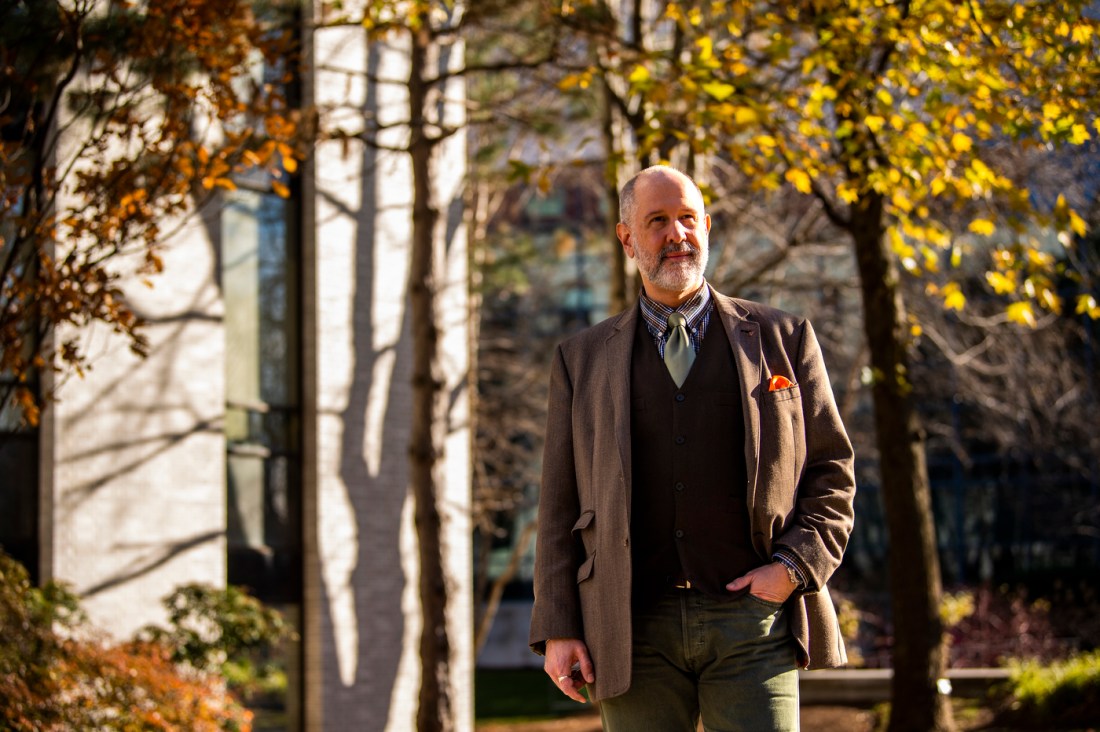10 tips to make your New Year’s resolutions stick this year
Northeastern University psychology professor Aaron Daniels says that, when it comes to setting goals and kicking bad habits, it’s better to start slow.

With the new year just days away, many people are starting to think about what kinds of changes — big and small — they’d like to make in their lives.
Some people don’t participate in New Year’s resolutions, but many feel the pressure to start off the new year in a healthy way. On average, resolutions don’t last long: the second Friday in January, often referred to as “Quitter’s Day,” is a common point at which droves of people throw in the towel and revert back to their old ways.
But there are some tips and tricks to setting achievable goals.
Northeastern University psychology professor Aaron Daniels says that when it comes to setting goals and kicking bad habits, it’s better to start slow.
1. Set an alarm
Set an alarm in the morning in order to make the time, and think about whether the changes you’d like to make are right for you.
“Discipline works somewhat like a muscle in that the little discipline leads to more discipline, leads to more,” Daniels says.
2. Start small
“And holding off on the deadline bigger goals — goals that take longer to get — when you do achieve them: we receive huge benefits to our sense of self,” he says.
“This is part of the tug and pull of goal-setting, you really do want to start smallish, and show yourself that you can do this little thing, then build up,” Daniels says.
3. Listen to yourself
But it’s also important, he says, to listen to yourself.

“Somebody who has never taken to running before ought to be open to the possibility that that might not be the way for them to do aerobic exercise,” he says.
The gist is, Daniels says, to get it into the schedule. When you bake habits into the schedule, they become “harder to avoid.”
4. Make it mandatory
It needs to feel compulsory, otherwise you’ll find it hard to hold yourself to a new routine.
“You set the morning alarm so that there is time for you to do it,” Daniels says. “And don’t wait for you to feel like doing it — you’ve got to just do it.”
When it comes to the dropping of habits, much of the same still holds: take smaller steps. It’s better to reduce before you eliminate.
But depending on the particular habit, there are some important things to consider.
5. Seek proper support
“If we’re talking about something like alcohol, we may need clinical support around that,” Daniels says. “You would want to let your medical doctor know about it, and schedule a couple extra appointments.”
For individuals who suffer from substance use disorder, quitting cold turkey can actually be life-threatening. If you or a loved one plan on using the new year as an occasion to quit or scale back on a substance, it is important to have a conversation with a medical professional about how to go about it, Daniels says.
6. Take time to reflect
For all those other habits that a person can dispense with on their own, it can take quite a bit of work.
“From what we know about dropping habits, it is important to consider all of the things that you do around that particular habit,” Daniels says. “What do you do before it, and what do you do before that? In other words, what leads you to pick up the vape pen or the cigarette? It’s the setting and context itself we’re talking about.”
Editor’s Picks
7. Think big picture
That’s why it’s important for people to think about the bigger picture when kicking a habit: you need to understand the behaviors, situations and thought patterns — the “triggers” — that lead to the habit. Because it’s those behaviors, situations and thought patterns that help sustain it.
“You have to ferret out the structure of the habit, and by doing that you can start to walk yourself out of it,” Daniels says.
8. Replace the bad habit
Daniels says that getting rid of a bad habit is only the first step: it’s better to replace it with a new, healthier “and more pleasurable alternative.”
Those new habits could involve a whole host of things, from joining a gym or volunteering in your community; or they could be as simple as mindful breathing.
9. Try ‘belly breathing’
A Mindfulness Fellow with Northeastern’s Center for Spirituality, Daniels is a big proponent of the benefits reaped from so-called “belly breathing.” It’s the perfect bite-sized activity that can be integrated into a routine.
“Say someone is trying to eliminate a half-a-pack-per-day cigarette habit? If I could replace that bad habit and get a group of people to take five minutes 10 times a day to walk away from whatever they’re doing, stare off the instance and engage in a really deep exhalation — that would be incredible,” Daniels says. “Because what usually results is diaphragmatic breathing.”
10. Stay positive
As to which goal-setting frames work best, evidence suggests that putting a positive spin on your goals, versus merely thinking about avoiding negative or undesirable outcomes, better helps you achieve them.











